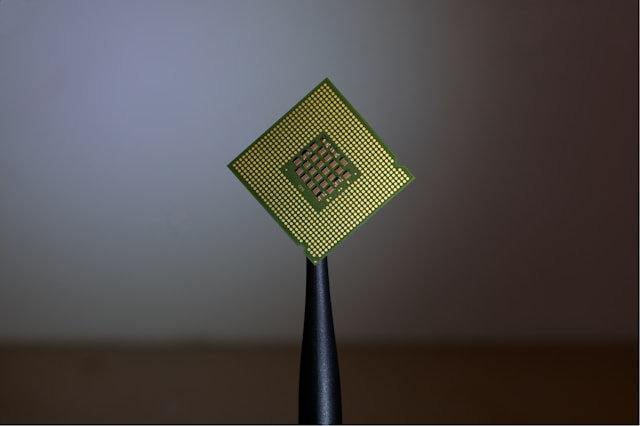 POLICY
POLICY
 POLICY
POLICY
 POLICY
POLICY
The Biden administration today announced new restrictions on advanced chip technology that can be exported to China in a further effort to curb the country’s ambitions in artificial intelligence and the development of high-end military technology.
According to the Commerce Department’s Bureau of Industry and Security, the new export controls will see over 100 Chinese chipmaking tool manufacturers placed on a restricted trade list, which will prohibit U.S. firms from sending them equipment without permission from the U.S. government.
This is the third major move by the Biden administration to thwart China’s chip industry with restrictions. It will very likely be the last one, although, after President-elect Donald J. Trump’s inauguration next month, the Trump administration will likely carry on this hardline approach to China and its advanced technologies.
Commerce Secretary Gina Raimondo said these are “the strongest controls ever enacted by the U.S. to degrade the P.R.C.’s ability to make the most advanced chips that they’re using in their military modernization.” After working with industry experts, she said these new restrictions will bolster national security while having minimum unintended commercial consequences for American companies.
National security experts in the U.S. have consistently issued warnings about the prospect of Chinese supercomputers and AI that could result in cyberattacks on the U.S., as well as the construction of new Chinese weapons and highly advanced surveillance architecture that could put the U.S. in harm’s way.
In 2022, the White House signed the CHIPS and Science Act into law, a bipartisan bill designed to “supercharge” the U.S. semiconductor industry by helping companies compete with China’s cutting-edge technologies. Biden’s second swipe at the Chinese chip industry came the following year when an executive order blocked U.S. citizens and organizations from investing in certain areas of Chinese tech, including advanced chips.
“As technology evolves, and our adversaries seek new ways to evade restrictions, we will continue to work with our allies and partners to proactively and aggressively safeguard our world-leading technologies and know-how so they aren’t used to undermine our national security,” White House National Security Adviser Jake Sullivan said about the new restrictions.
Chinese foreign ministry spokesperson Lin Jian responded by saying the restrictions will disrupt international trade while violating the laws of the market economy. “We have repeatedly made clear our position on this issue,” he said. “China firmly opposes the U.S.’s overstretching the concept of national security, abusing export controls and maliciously blocking and suppressing China.”
Support our mission to keep content open and free by engaging with theCUBE community. Join theCUBE’s Alumni Trust Network, where technology leaders connect, share intelligence and create opportunities.
Founded by tech visionaries John Furrier and Dave Vellante, SiliconANGLE Media has built a dynamic ecosystem of industry-leading digital media brands that reach 15+ million elite tech professionals. Our new proprietary theCUBE AI Video Cloud is breaking ground in audience interaction, leveraging theCUBEai.com neural network to help technology companies make data-driven decisions and stay at the forefront of industry conversations.